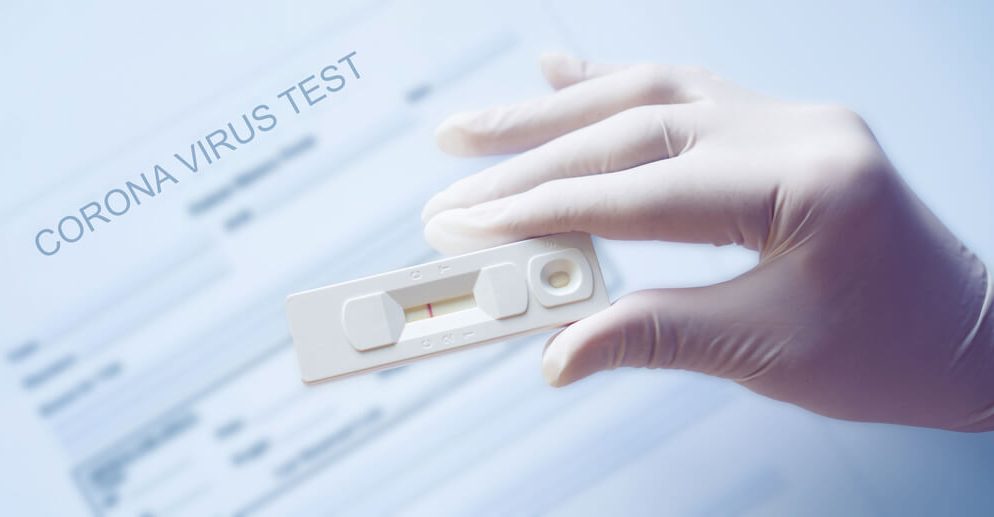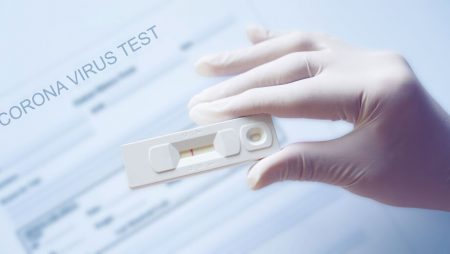



Get new exclusive access to healthcare business reports & breaking news




According to an FDA filing, Amazon has received authorization from the Food and Drug Administration for a Covid-19 test the company intends to use for its employee screening program.
The FDA letter of authorization is addressed to Cem Sibay, vice president of Amazon Labs, who was previously a top executive of Amazon’s Prime unit.
The test, developed by Amazon subsidiary STS Lab Holdco, is done via a nasal swab that individuals administer themselves, either under the supervision of a healthcare professional or at home.
The FDA authorization comes as Amazon continues to expand its testing program for warehouse and delivery employees.
Amazon plans to use the test among its workforce as part of its Covid-19 preparedness and response program, according to a separate FDA document.
Amazon is now beginning to automatically sign up workers to get tested every two weeks, which is in line with its previously stated goal of testing front-line employees on a routine basis.
Depending on their work schedule, employees may be scheduled for an on-site test or they’ll be given a collection kit to administer the test at home, the document states.
The efforts Amazon put into building a team especially to develop coronavirus testing capacity, as reported by CNBC last June, are giving fruit. Amazon had assigned research scientists, program managers, procurement specialists, and software engineers to that team, in order to have results. The company also launched standalone diagnostic labs in Sunnyvale, California, and in Hebron, Kentucky.
In February, Amazon said its Kentucky lab had processed more than 1 million Covid-19 tests for front-line employees from more than 700 testing sites.
If employees could previously sign up to be tested via an internal system, now Amazon said it has started to automatically assign regular testing appointments for some workers at its facilities, typically every two weeks. The assigned appointments remain voluntary.
It seems Amazon is trying to follow its previously stated plan, to test the majority of their frontline workers every two weeks, in order to ensure safety. Even more, the company recently said it would begin setting up on-site vaccination clinics at facilities in Missouri, Nevada, and Kansas.
Amazon was really motivated to work on establishing a testing capacity, mainly to be able to test its own workforce, since employees were exposed and the sick workforce hard to replace. Last October, after being pressured to do so by various labor groups, politicians, and its own people, because of safety concerns regarding the pandemic, Amazon disclosed that nearly 20,000 front-line employees contracted Covid-19 between March 1 and Sept. 19.
In the last few years, Amazon has paved its own way into the American healthcare industry, causing a seismic shift in the world of the drug prescription and supply chain. It all started in 2018 when it paid a steep price of nearly $1 billion to acquire the mail-order online pharmacy PillPack, outbidding its closest rival Wal-Mart.
Taking into account medical diagnostics as an area of future expansion, Amazon also looked at buying a start-up developing at-home health tests and it operated a team dedicated to diagnostics within its “Grand Challenge” moonshots group.
In October that year, Amazon patented a new version of its virtual assistant Alexa. The new feature was supposed to use speech analysis to recognize signs of illness or emotion. The app was programmed to detect whether the speaker is ill and offer to sell the medicine. A “skill”, which is the Amazon equivalent of a smartphone app, can be installed and then put to test with questions. Around 1,000 health-related skills on Amazon, most of them free, are now available for download. Alexa can be gradually improved, by introducing new skills.
Late that same year, Amazon launched Comprehend Medical, a machine learning service for health information, in order to further improve healthcare options, Change Healthcare, which processes health claims for pharmacies, being one of the early adopters of the AI system to predict whether an insurance claim will be denied or not.
A senior leader of artificial intelligence at Amazon, Taha Kass-Hout, said Amazon’s approach to how AI was used in healthcare was more pragmatic since they chose to start with a concrete problem, instead of building a solution first and hoping that there would be people needing it. “Our approach is really far more iterative and more transparent in that way that we always start with a problem and walk backward from that across every business we do,” he explained.
Improving healthcare using AI solutions is the focus of many companies in recent years. Holon Solutions, for instance, has built a patented technology software, CollaborNet®, which provides healthcare practices with patient insights so that they can focus on delivering optimal patient care.